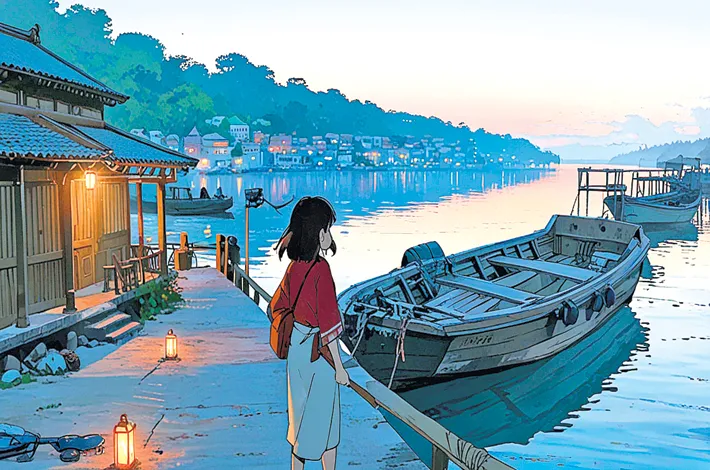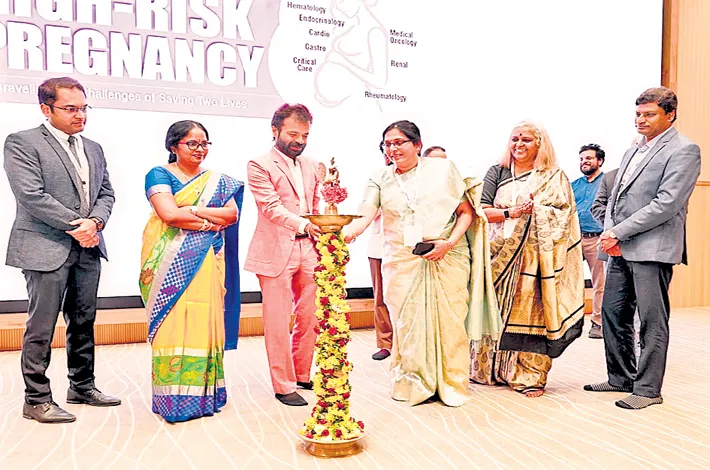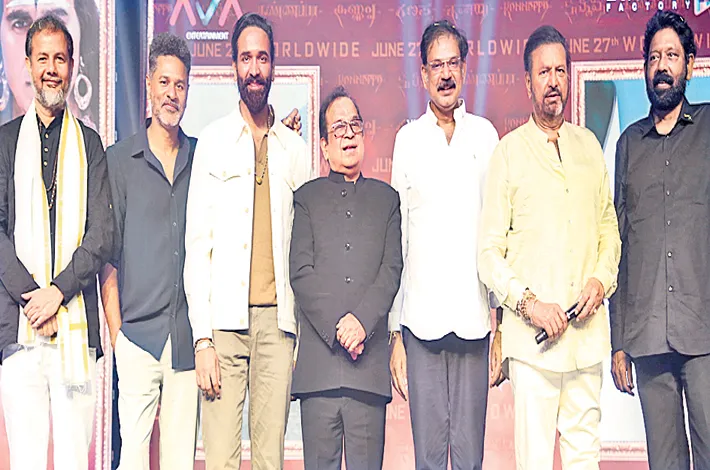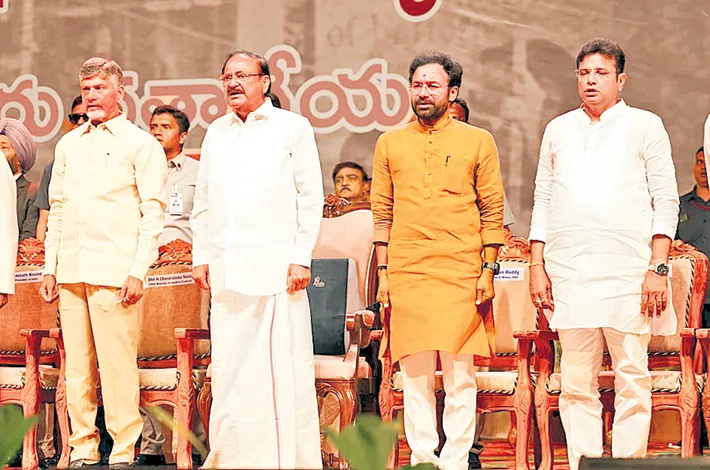Whispers from Godavari
07-06-2025 12:00:00 AM

In the quaint coastal town of Yanam, where the Godavari River kissed the Bay of Bengal, the air carried the scent of salt and jasmine. The sun dipped low, painting the sky in hues of saffron and rose, as Meera stood by the riverbank, her dupatta fluttering in the gentle breeze. She was a painter, her canvases alive with the colors of Yanam’s sunsets, its colonial streets, and the quiet rhythm of its people. Yet, her heart, like her latest canvas, felt unfinished, searching for a shade she couldn’t name.
Meera had returned to Yanam after years in Chennai, drawn back by the pull of her childhood home. Her parents’ old house, with its tiled roof and creaky wooden floors, stood near the French-era clock tower. Every evening, she’d walk to the river, sketching the boats that bobbed on the water, their silhouettes dancing against the twilight. It was here, on one such evening, that she first saw Arjun.
He was sitting on a weathered bench, strumming a guitar, his fingers coaxing soft, melancholic notes from the strings. His hair was tousled, kissed by the sea breeze, and his eyes held a quiet intensity, as if he were searching for something in the river’s ripples. Meera, usually shy, felt an inexplicable urge to speak to him. She approached, her sketchbook clutched to her chest.
“Is that a song about the river?” she asked, her voice barely above a whisper.
Arjun looked up, startled, then smiled—a slow, warm curve that made her heart skip. “It’s about longing,” he said. “The river just helps me find the words.”
They talked as the sky darkened, stars blinking into existence. Arjun was a musician, visiting Yanam to find inspiration for his next album. He spoke of music like Meera spoke of painting—each note a color, each chord a stroke. They shared stories of their crafts, of dreams that felt too big for the world, and of Yanam’s quiet magic. When they parted, he promised to return to the riverbank the next evening.
Days turned into weeks, and the riverbank became their sanctuary. They’d meet under the tamarind tree, where Meera would paint and Arjun would play. Sometimes, he’d hum a tune inspired by her laughter; other times, she’d sketch the curve of his jaw as he lost himself in a melody. Yanam, with its narrow streets lined with bougainvillea and colonial houses painted in pastel shades, seemed to wrap them in a world of their own. They’d walk past the old French cemetery, where moss-covered tombstones whispered of forgotten loves, or share filter coffee at a roadside stall, the aroma mingling with their quiet laughter.
One evening, as fireflies began to dot the air, Arjun took Meera’s hand. His touch was warm, tentative. “I wrote something for you,” he said, his voice low. He played a song, its notes soft and aching, like the tide pulling at the shore. Meera’s eyes shimmered with tears—she heard her own heart in his music, her unspoken dreams woven into his chords.
“I see you, Meera,” he said when the last note faded. “In every color of this town, in every ripple of the Godavari. You’re my muse.”
Her breath caught. She wanted to tell him he was her muse too, that his music had given her paintings new life, but words felt too small. Instead, she leaned forward and kissed him, soft and fleeting, under the tamarind tree. The river sighed, as if it had been waiting for this moment.
But love, like Yanam’s tides, wasn’t always gentle. Arjun’s visit was nearing its end. He had a life in Hyderabad, a studio waiting, a tour to plan. Meera, too, had her own path—her paintings were gaining attention, and a gallery in Pondicherry had invited her to exhibit. Their evenings grew heavy with unspoken questions. Could love survive distance? Could they hold onto this fragile, beautiful thing they’d found?
One night, as they sat by the river, the air thick with the scent of rain, Meera spoke. “What happens when you leave, Arjun? Will this—us—just be a memory?”
He was quiet for a long time, his fingers tracing patterns on her palm. “I don’t know,” he admitted. “But I know I don’t want to lose you. Not to distance, not to time.”
The next day, a storm brewed over Yanam. Dark clouds rolled in, and the Godavari churned restlessly. Meera stood at her easel, painting furiously, trying to capture the storm’s raw energy. Arjun found her there, soaked from the rain that had begun to fall. Without a word, he pulled her into his arms, and they stood in the downpour, the world blurring around them.
“Let’s make it work,” he said, his voice fierce against the rain. “I’ll come back. You can visit. We’ll find a way.”
Meera nodded, her heart swelling. “We’ll paint and play our way through it,” she said, a smile breaking through her tears.
The storm passed, leaving Yanam glistening under a new dawn. Arjun left for Hyderabad, but their story didn’t end. They wrote letters, sent voice notes of songs and sketches, and planned visits. Meera’s paintings, now vibrant with the colors of love, filled the gallery in Pondicherry, and Arjun’s album, infused with Yanam’s spirit, resonated with listeners far and wide.
Months later, they met again by the Godavari, under the same tamarind tree. The river flowed on, steady and eternal, carrying their whispers into the night. In Yanam, where time seemed to pause between the old world and the new, Meera and Arjun found their forever—a love painted in sunset hues and sung in soft, soulful notes.








